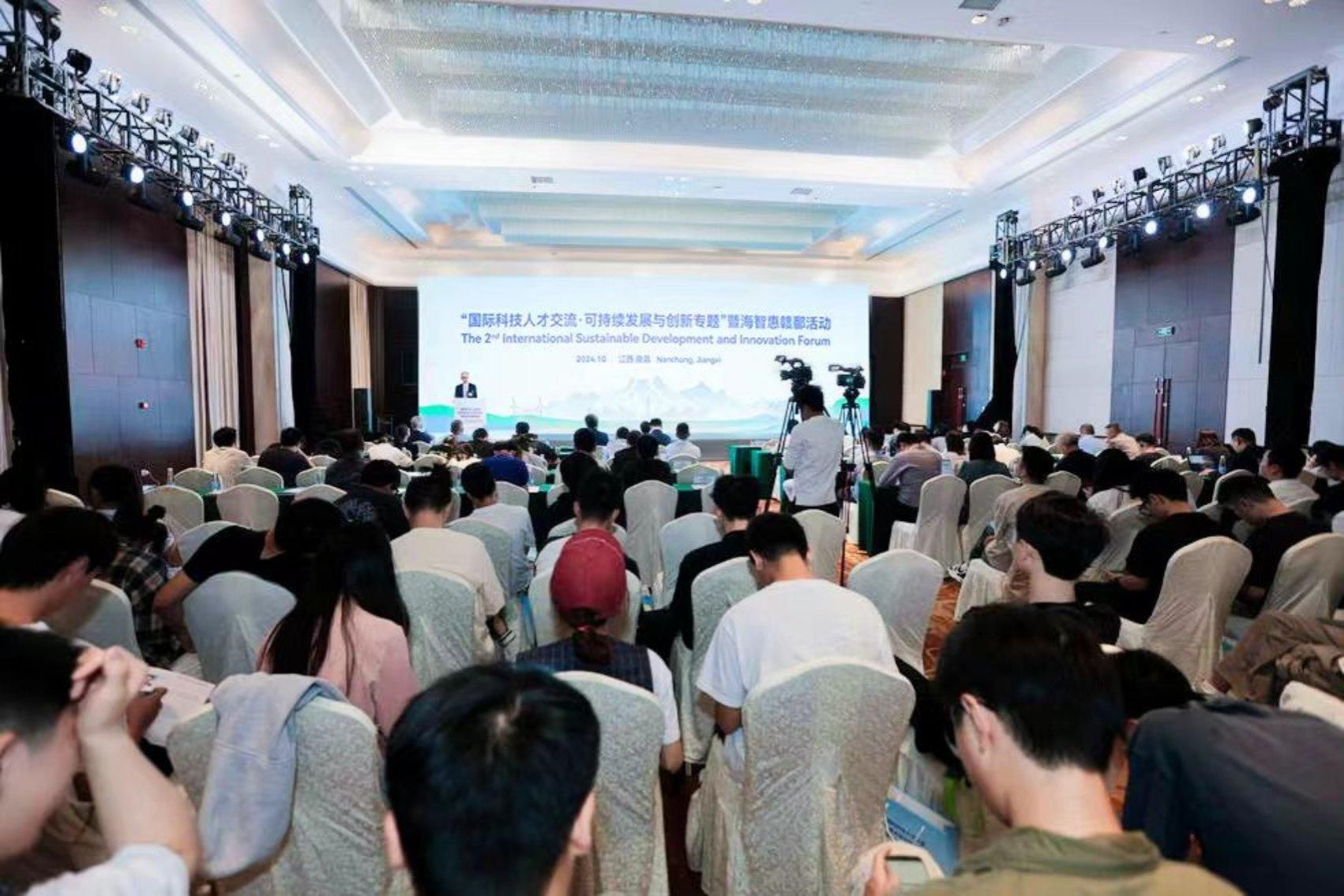
On October 14, the opening ceremony for the "International Science and Technology Talent Exchange: Special Session on Sustainable Development and Innovation" and “Pooling Global Talents for a Better Jiangxi” event took place in Nanchang, This event was hosted by the China Association for International Exchange of Personnel, the Science and Technology Department of Jiangxi Province, and the Department of Ecology and Environment of Jiangxi Province, and organized by Nanchang University (NCU) and Shenzhen Center for International Exchange of Personnel (SCIEP).
The opening ceremony was chaired by Luo Sihai, Secretary of the Party Committee at Nanchang University. Keynote addresses were delivered by Qin Tao, Deputy Director of China Association for International Exchange of Personnel; Song Dexiong, Director of Science and Technology Department of Jiangxi Province; Troels Skrydstrup, a Danish expert at NCU and winner of the 2024 Chinese Government Friendship Award; and Paul Lewis, Chief Operations Officer of Royal Society of Chemistry (RSC). Also in attendance were Yu Zhengkun, Secretary of the Party Leadership Group of the Department of Ecology and Environment of Jiangxi Province; Chen Weirong, Deputy Director of Science and Technology Department of Jiangxi Province and Director of Jiangxi Administration of Foreign Experts Affairs; along with over 120 young scholars, university faculty, students, and scientific professionals.
This event featured academicians from renowned institutions, including Alfred Spormann, Fellow of American Academy of Microbiology (AAM) and Professor of Stanford University; Keiichi Tomishige, Professor of the School of Engineering Research at Tohoku University in Japan; and Timo Repo, Fellow of the Finnish Academy of Science and Letters. Additionally, over a dozen strategic scientists and young talents in the field of sustainable development from China, Norway, and other countries participated in the exchange in Jiangxi.
During the event, Chinese and foreign experts interacted with local faculty, students, and young researchers through a variety of activities, including academic forums, field visits, and science popularization lectures. The goal of this event was to facilitate the sharing of ideas and insights among scholars from diverse backgrounds, enhance the quality of academic outreach, promote scientific and technological innovation, and strengthen international cooperation and exchanges.




